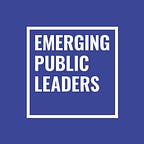African Leadership for a Common Future
By Folorunso David
Written August 30, 2022
This September, the 77th United Nations General Assembly (UNGA) will commence in New York City. For African leaders in attendance, this year’s General Assembly should serve as an opportunity for self-reflection over what the future of the continent should look like. Specifically, how they can harness the potential, aspirations and agenda of Africa’s youth and translate the promise of demographic dividend into real development outcomes.
For one, there must be a re-examination of what African leadership should look like in the closing years of this decade. To deliver the promise of a prosperous Africa, the quality of leadership must match the daunting realities of modern democratic systems –especially if African countries are to sufficiently bounce back in the post-pandemic world.
The continent’s overwhelming youth-to-elderly and youth-to-child population ratio shows its potential to exponentially boost its per capita income with an outsized working population. However, the factors (low fertility with low mortality) that enable this are fast changing — one projection anticipates a reversal of those population ratios from 2030. With large youth populations across the continent, African leaders must recognize that the window of opportunity is closing.
Other governance metrics further demonstrate that the current crop of African leadership is wanting. Since the annual Ibrahim Prize for Achievement in African Leadership was launched in 2007, there have been more years without a winner than years with one. As we revitalize African leadership moving forward, we must recognize the need to seek out a unique set of characteristics in leaders. This new generation of leadership should be well versed in technical aspects of public policies, but also exhibit the soft skills of effective communication, empathy, persistence, collaboration, and innovation. These leaders must be agile, be inspirational, and have unshakeable commitment to a culture of professionalism and excellence.
Most often, the African leaders who already exhibit these qualities come from the younger generation. For example, Ezra Olubi and Shola Akinlade are two young Nigerians who, within 5 years, transformed an undergraduate project in university into a multi-million dollar fintech company that has become the reference point for sound corporate governance in Nigeria’s burgeoning tech ecosystem. They are not the only ones — young African leaders are enabling social change through organizations they lead in agriculture, finance, education and other sectors of the economy.
Some of them are in the public sector. Fidelis Kwadwo Ankomah, a Ghanaian leader serving in the State Interests and Governance Authority, recognized a need for data analysis and developed a ten-year financial database to provide informed financial decisions for the year-old Authority. Dr. Ibrahim Ajami and Dr. Moses Ziah II were guided by their work in Liberia’s Ministry of Health to create a more holistic approach to combating COVID-19 by sharing testing data and prevention guidance with government and local leaders to keep their communities safe. What needs to change for more excellent African youths to join Fidelis, Ibrahim and Moses in service of the people through a career in government?
For a start, a mindset shift is necessary. Young Africans are not leaders of tomorrow — they are tried and tested leaders of today. The impact of Fidelis, Ibrahim and Moses illustrate that youth does not mean inexperience. Current African political leaders — with an average age of 70 — should understand that this younger pool of innovators share the power, experience and passion to revolutionize Africa’s development.
To put this into practice, African governments must shift from offering token positions to young people and instead legislate and institutionalize systems that enable their participation on their own terms. Arbitrary age limits that keep out the youth from government positions must be revoked, financial barriers to participation in political party processes must be removed, and the system of political patronage must be renounced.
Beyond this, cross-generational models of leadership should be embraced to leverage the comparative advantage of different generations in leadership to the benefit of all African people. Such multi-generational leadership teams have been proven to achieve better outcomes compared to teams with a uniform age range. What this looks like in reality is important government committees that seat a 70-year-old political veteran with a 25-year-old tech whiz — both contributing equally with a sense of public duty in a professional atmosphere of mutual respect. African youth are not dictating that they must supplant the older leaders, they are asking for an equal seat at the table to shape the common future they will live in.
While UNGA is an opportunity to introduce debates on these subjects, putting them into action transcends the discussions of ideas that have already been broached. Given the urgency of leveraging Africa’s young population for development outcomes, government leaders must return to their respective countries with a commitment to take actions towards embracing the new generation of African leaders.
This may take the form of constitutional amendments, executive orders, or national emergency initiatives. It may also take the form of partnership with organizations that have experience cultivating a generation of public leaders, such as Emerging Public Leaders, Young African Leaders Initiative, and Aspen Management Partnership, among others. As noted in the official communique of the recently concluded Commonwealth Heads of Government Meeting (CHOGM) hosted in Rwanda, the year 2023 and beyond should be defined by “youth-led action for sustainable and inclusive development.”
The post-pandemic economic recovery of Africa requires the buy-in of the population and with the majority of Africans being youth, only the bottom-up approach of inter-generational leadership is likely to galvanize the people into buying into the government’s recovery plans for a common future.
Folorunso David is a former program associate for Emerging Public Leaders, a public service leadership organization that is preparing the next generation of competent and effective public sector leaders in Africa through its Public Service Fellowship.
